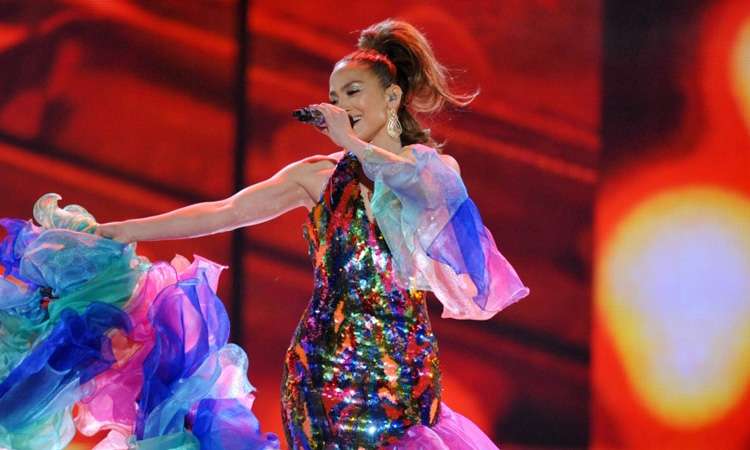Why Does This Kolaveri Di The English lyrics to “Why This Kolaveri Di” made the song a huge hit all over the world, not just in India. This song, which first appeared in the 2012 Tamil movie “3,” is a unique mix of traditional South Indian music and Western music styles. “Kolaveri Di” loosely translates to “Why are you so angry, girl?” in English. This song stands out because it has catchy, slangy words sung in Tanglish, which is a mix of Tamil and English.
The song’s popularity may have come from how simple it was, how relatable it was, and how honestly the words expressed their feelings. The song, sung by star Dhanush, shows how sad and heartbroken a young man is funnily and touchingly. Anirudh Ravichander’s music is popular all over the world because it is a unique mix of traditional and current styles.
The video for “Why This Kolaveri Di” went viral on YouTube very quickly, getting millions of views in mere hours. Social media sites helped it become even more popular, turning it into a cultural phenomenon. People from all over the world loved the song, and its unique charm and catchy melody made it a cross-cultural hit and a great example of how the Internet can bring localized material to the attention of people around the world.

What does kolaveri mean in English?
Murderous rage
The term Kolaveri means “murderous rage”.
In Tamil, “Kolaveri” means something that sounds like “murderous rage” or “killer rage” in English. In the famous song “Why This Kolaveri Di,” the phrase refers to being angry, sad, or annoyed. The song’s words, which are written in Tanglish, a language that is a mix of Tamil and English, show how the main character feels about being rejected and hurt inside.
Because “Kolaveri” is a word used in everyday speech in Tamil Nadu, India, it gives the song a touch of regional realism. The use of everyday English in the lyrics makes them easier for a lot of people to understand, which helps the song’s world appeal.
In short, “Why This Kolaveri Di” gets to the heart of an emotional crisis by using a word that means intense, almost “murderous,” anger. Language use that isn’t typical and the emotional depth of the word “Kolaveri” are important parts of the song that make it special and connect with people all over the world.
What is meant by soup song?
Now that the song is popular, a lot of people are wondering what ‘soup song’ means. I derived that from the English phrase ‘to be in a soup’; thus, a ‘soup song’ is one that arises out of a break-up. In the same vein, a ‘soup boy’ is a guy who has been dumped. People keep telling me that the video looks natural.
An everyday word called “soup song” got its start with the famous South Indian song “Why This Kolaveri Di.” When used in the context of the song, the term “soup song” does not literally mean vegetable soup. Instead of a serious or sad tune, it is a fun and slangy way to say it. The main character of the song uses the phrase to describe how emotional the melody is, suggesting that it is a song that people might listen to when they are sad or angry.
The phrase “soup song” gives the words a bit of humor and a sense of familiarity that makes the song more appealing and easy to relate to. Tamil movies often use creative language, and this song mixes traditional and modern elements in a way that looks great.
The term ” soup song” in “Why This Kolaveri Di” basically means a nice and unique way to discuss a sad or emotional song, which shows the song’s humorous and creative attitude.
Where did “Why This Kolaveri Di” originate?
The song “Why This Kolaveri Di” is from the Aishwarya R. Dhanush-directed Tamil movie “3,” which came out in 2012. A singer and actor named Dhanush (who played the lead role in the movie) and a musician named Anirudh Ravichander wrote the song. Anirudh, a fairly new musician at the time, wrote the music for the movie. “Why This Kolaveri Di” was one of the best songs in the score.
When the song was uploaded to YouTube on November 16, 2011, it became more famous. The unique mix of South Indian folk and Western pop styles, as well as the funny and slangy words spoken in Tanglish, a mix of Tamil and English, helped it become a hit. This song deals with feelings of sadness and anger in a fun and catchy way.
The movie “3” got a lot of attention not only for its music but also for its unique story and how it dealt with issues like love and mental health. “Why This Kolaveri Di”‘s” huge popularity helped make the movie and its music very well-known. The song became a cultural phenomenon that spread across regions and was praised all over the world.
How did Kolaveri Di go viral?
The social media explosion supposedly started when a rough version of the song was leaked on YouTube and became an Internet phenomenon in just a few days.
The song “Why This Kolaveri Di” became famous thanks to its catchy music, meaningful lyrics, and the power of the Internet. It was uploaded to YouTube on November 16, 2011, and quickly became a worldwide hit.
Composer Anirudh Ravichander’s unique mix of South Indian folk and modern sounds was a big part of why the song went viral. The song became more famous because actor Dhanush sang the funny and slangy lyrics in Tanglish, making them accessible to a wide range of people. The theme of sadness and hopelessness deeply moved many people.
The music became popular much faster because it was easily shared on social media. Fans shared the video on several social media sites, which made it go viral. The song got more attention online through memes, versions, and covers.
The song was able to reach people from all over the world because it was simple and had a universal message. The site’s popularity showed how revolutionary the Internet can be by showing how local material can go viral and become a cultural phenomenon. “Why This Kolaveri Di” became one of the most famous and praised Indian songs in the world thanks to its catchy tune, feelings that many people can relate to, and the power of online sharing.

What impact did “Why This Kolaveri Di” have on the music industry?
The song “Why This Kolaveri Di” changed the music business a lot, not just in India but also around the world. With the help of digital platforms and social media, the song’s popularity marked a big change in how music is marketed and listened to.
1. Fame around the world: The song’s popularity spread around the world, introducing Indian music, especially the Tamil film business, to new fans. Its catchy tune and honest feelings connect with people all over the world, even though they don’t speak the same language. This shows that regional music can be popular all over the world.
2. Digital Dominance: “Why This Kolaveri Di” showed how powerful online platforms, especially YouTube, can be for promoting and spreading music. The song’s quick spread on social media helped it become popular, showing how important digital platforms are becoming in the music business.
3. Crossover Success: The song’s mix of South Indian folk and Western pop sounds showed how a crossover genre can work well with a lot of different types of music. This unusual mix made it possible for people in the Indian music business to work together and try new things in the future.
4. Independent Music Scene: The song’s popularity helped independent music grow in India. It showed that a song doesn’t have to be in a big-budget Bollywood movie to be famous all over the world. This made it possible for independent artists and composers to become famous.
Basically, “Why This Kolaveri Di” made an indelible mark by showing that regional music can be heard all over the world, changing the way internet promotions are done, and helping the Indian music business grow.
Why was soup called soup?
The word soup derives from the Latin word ‘suppa’, which refers to bread soaked in broth. It was popularised in the 1600s by the French ‘soupe’. The word is also found in Proto-Germanic language as ‘sup’, which means ‘to make liquid’.
In cooking, “soup” is a liquid dish made by mixing different things like meats, veggies, and grains in a broth or stock. The word “soup” comes from Old French, where “soup” means a broth or liquid food. The meaning of this word changed over time and can now be found in many languages.
It’s possible that soup was one of the first prepared foods since it was made by mixing items in a pot over a fire. First-generation soups often had bread in them so that the word may have come from “soaking” or “sopping” bread in broth. This use of the word “soup” has been recorded in recipes and other writings from many cultures for thousands of years.
As cooking styles changed around the world, soups became an important part of many of them. Each country added its unique tastes and varieties. The word “soup” has stuck around as a simple, all-purpose way to describe this wide range of liquid meals. Today, soup is a relaxing and varied food that people all over the world love. The word “soup” itself shows how cooking methods have changed over time and between places.
Dhanush’s most famous ‘Why This Kolaveri Di Lyrics’
People love Dhanush’s songs, and “Why This Kolaveri Di” is one of them. The words are funny and casual. The song is written in Tanglish, a mix of Tamil and English, which makes it even more beautiful. Throughout the song, the main character talks in a casual, conversational way to show sorrow and anger.
The first words of the song, “Yo boys!” set the mood.”I’m singing a song, a soup song, or a flop song.” The word “soup song” became famous and linked to the music. Dhanush calls the sad mood of the song a “soup song,” which means it’s a song to listen to when you’re feeling down.
The chorus, which is probably the most memorable part of the song, repeats the line “Why this Kolaveri Di.” “Kolaveri” means “deadly fury” or “huge irritation.” The use of “Di,” a simple Tamil word for “you,” gives the lines a more personal feel.
Lines like “Distance la moon-u moon-u / Moon-u color-u white-u” are funny and make no sense, which adds to the song’s fun vibe. “Why This Kolaveri Di” became a cultural phenomenon and one of Dhanush’s most praised works because the words were simple, easy to understand, and had a touch of regional flavor.
Why men write soup songs?
People first used the phrase “soup song” in their everyday speech after hearing Dhanush’s song “Why This Kolaveri Di.” This strange saying doesn’t actually refer to a meal; it’s just a fun way to talk about sad or dark music. You could think of the question “Why men write soup songs” as a lighthearted one that asks why anyone of any gender writes music about mental pain and loss.
Artists have used songwriting for a long time to show how they feel and tell stories, often based on their own lives. Many songs from all over the world and periods have been inspired by love and sadness. The use of the word “soup song” in the lyrics suggests that these kinds of songs give people emotional support, like comfort food, which helps them deal with and get over sad or angry feelings.
Basically, the question makes fun of how many songs there are that deal with emotional aspects of life, especially love and loss. It shows how these problems affect many people and how important music is as a way for people to share and connect with their feelings.
“Why This Kolaveri Di” shows how music can bring people from different languages and cultures together. The song became famous all over the world very quickly because of its catchy mix of South Indian folk and modern sounds, along with Dhanush’s powerful singing and Anirudh Ravichander’s unique composition.

The words, written in the unique Tanglish language, are more appealing and relatable because they are casually written. The song’s popularity didn’t just limit itself to the movie business; it spread like wildfire through culture and beyond Tamil cinema.
The speed with which “Why This Kolaveri Di” spread on digital platforms and social media showed how the Internet can change the way regional information is shared with people around the world. This one-of-a-kind song not only entertained but also touched people on a personal level. It will always be remembered as a great example of how internet music sites can make music more accessible to everyone.
“Why This Kolaveri Di” is still a famous event in Indian music history. It shows how powerful a catchy song, the feelings that people can relate to, and the ability of the Internet to connect people all over the world can be. The fact that it’s so famous is a good reminder that great art can affect people all over the world, even if they don’t speak the same language.







Leave a comment